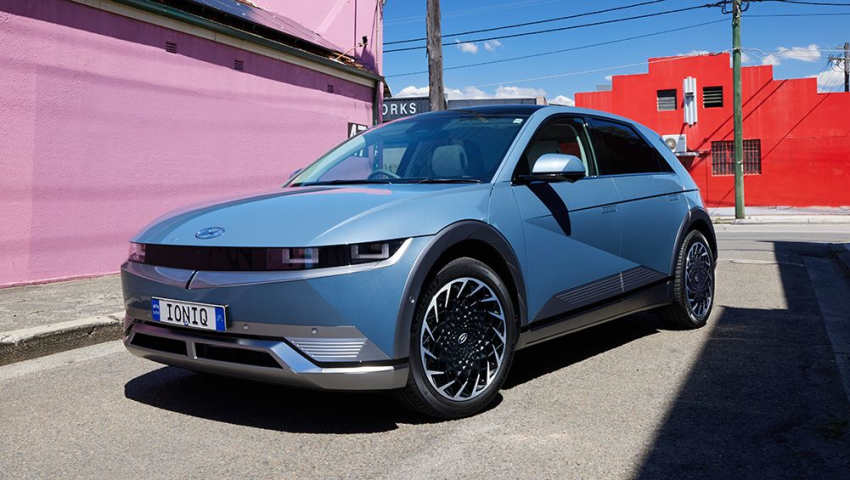Details of Hyundai's affordable city-sized SUV electric vehicle (EV) are falling into place at last, as the world's number three carmaker steps up against Chinese brands like BYD, MG and others.
Due in 2025 after a global debut later this year, reports have suggested a target price of around €20,000, which equates to about $A33,400 in today's money. Right now, the cheapest EVs in Australia are the BYD Dolphin and MG4 starting from $38,890 and $38,990 respectively.
Said to be a development of the Casper crossover city car launched in Korea back in 2021, the circa-Hyundai Venue-sized crossover is believed to have undergone significant changes and upgrades to make it more suitable to overseas territories like Europe and Australia.
These include being larger, some 250mm longer and stronger (partly to accommodate the sizeable battery pack that's rumoured to offer up to 320km of range), resulting in more space and safety than the standard 1.0-litre petrol-powered model to help meet both market and crash-test expectations.
Spotted testing in Australia as well as in Europe and Japan, 'Casper EV' production is said to start early next year in Korea, ahead of a mid-2025 rollout in other parts of the world.
While declining to divulge any information about his company's plans in this space, Hyundai Motor Company Australia (HMCA) Product Development Manager, Tim Rodgers, told CarsGuide last month that plans are afoot to rise to the challenge of more affordable EVs.
.jpg)
"We're so sensitive to that end of the market," he revealed. "Those customers are still in market, and they're still looking to that type of proposition. We would love to be able to deliver for them, but we can't say what that will look like at that stage."
Rodgers added that as HMCA is watching the EV market very closely, it has the agility to pivot where consumers are heading very quickly if required.
"With our general (EV) technology rollout – the (original from 2018-2022) AE Ioniq is almost opposite compared to how we've been electrifying the rest of our range – we've been starting from the top and trickling it back down, developing the cars to a point where we can get it cost-effective enough to bring it to market at lower price points.
.jpg)
"Especially with supply opening up for us for (the newer and more advanced E-GMP architecture-based) Ioniq and us being able to bring Ioniq price points right down; now we are looking further beyond that, so with Kona Electric, we reworked the line-up and maintained really effective price points there which keeps our strategy alive.
"And sure, we are very conscious about what's coming… so we're having a big long hard think about how we are going to approach that, not just in the near term but also in the long term as part of our EV strategy.
"Much like Kia's doing, we have plans, but probably not quite ready to talk much about it just yet. We'd like to come to you with more robust information rather than speculation."
.jpg)
Whether this Casper-based EV will benefit from Hyundai's recently-announced 50-50 joint venture with Beijing Motor Corporation to develop and make inexpensive EVs for China and abroad is not yet known.
Part of the deal is believed to revolve around access to cheaper Lithium iron phosphate battery tech that in turn helps keep prices down.
"We're trying to enter China properly, that's the global strategy right now, and the factory and tooling is working towards that," Rodgers said.

"There is certainly opportunity there for us for models, and we are having a very close look at everything.
"Looking at how that's unfolding and how our chairman is saying quite openly about that, and linking it back to how that works for western markets.
"It opens up opportunities for us with Chinese built Hyundai using some of our technologies."

In other words, it seems that Hyundai is adopting an "if you can't beat 'em, join 'em" attitude in taking on competition from China.
Whatever the brand's coming affordable EV turns out to be, it will be extremely competitively priced, packaged and presented.
Watch this space.




-2.jpg)


.jpg)

.jpg)
.jpg)

.jpg)

.jpg)

.jpg)
.jpg)

.jpg)

_0.jpg)





.jpg)

.jpg)
Comments